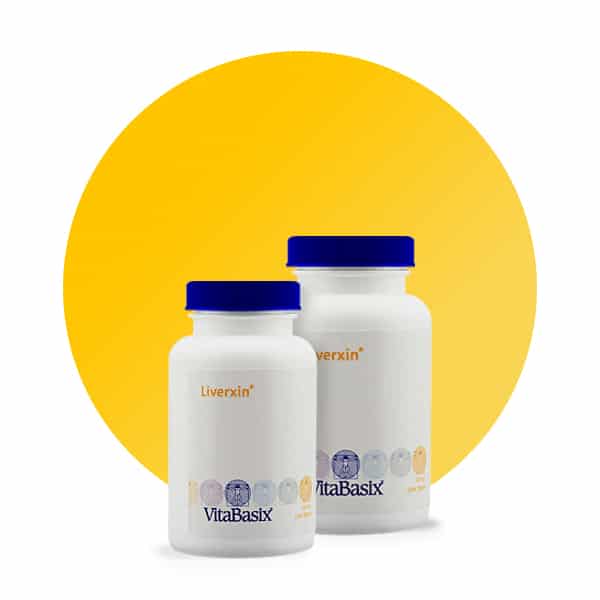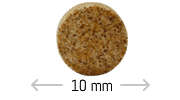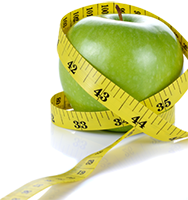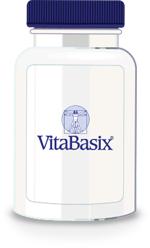The liver is one of the most important and multifunctional organs in the human body. It performs a number of functions that are necessary for daily life. The liver is technically considered a gland due to its active secretion of a variety of essential hormones that regulate metabolism. In addition, the liver cleans the blood, regulates blood sugar levels, breaks down red blood cells and produces a variety of proteins and vitamins needed for activities such as blood clotting and digestion, and is involved in removing breakdown products from the bloodstream. In addition, the liver produces bile, which is why it plays a dual role: in digesting fats and removing bilirubin from the body. Normal functioning of the liver is important to prevent the development of many ailments.
There are certain natural substances that can help to promote important metabolic processes, support the liver, the kidneys and the immune system in their normal function.
The following nutrients can contribute to this:
Vitamin B12: This water-soluble vitamin is found in animal foods such as fish, meat, eggs and seafood. It contributes to normal energy metabolism and normal immune system function as well as normal homocysteine metabolism.
L-arginine is one of the most important amino acids. It is found in foods such as meat, nuts and legumes, but pumpkin seeds are also particularly rich in this nutrient. This semi-essential amino acid is involved in several metabolic processes and can have a positive effect on liver function. In liver metabolism, L-arginine can support ammonia breakdown and urea formation. L-arginine can also promote blood circulation and a normal immune system. In addition, it is involved in the production of hormones such as growth hormones or also insulin. L-arginine can also support normal kidney function.
Glycine is found in numerous proteins. Soybeans, pork, peas and pumpkin seeds contain large amounts of this nutrient. As a non-essential amino acid, it can also be formed by the organism itself from serine, L-threonine or glyoxylate. Glycine has antioxidant, cell-protective and anti-inflammatory effects. It can support the excretory processes in the liver and positively influence blood sugar regulation. Furthermore, glycine can promote an increased release of growth hormones.
L-phenyalanine is found in foods such as beef, lentils, cashews and oatmeal. It transmits important signals between nerve cells and the brain. The amino acid can be converted into messenger substances such as serotonin or dopamine, so that it has a stimulating effect and can strengthen memory. Phenylalanine is also needed in the body for the excretion of harmful substances through the kidneys or bladder.
L-tyrosine is found primarily in foods such as peanuts, peas, eggs and soy products. However, it is also formed in the body from the amino acid phenylalanine and subsequently converted into other substances, hormones and neurotransmitters. Tyrosine is, for example, a precursor of the skin pigment melanin. In the thyroid gland, it helps to ensure that this gland produces sufficient thyroid hormones. Tyrosine is also needed for the function of the adrenal glands and for the formation of red and white blood cells.
L-methionine is another essential amino acid that can, among other things, support the normal pH value of body fluids. This nutrient is found in foods such as fish, meat, vegetables, wholemeal bread and rice. Methionine is a sulphur-containing amino acid that is involved in numerous metabolic processes and bodily functions. It is considered a precursor of glutathione and therefore supports antioxidant effects and can help regenerate the liver and kidneys.
The little-known amino acid L-threonine is also an essential amino acid. It is found in foods such as beef and chicken, walnuts, wholemeal flour and peas. Among other things, L-threonine promotes normal fat metabolism in the liver. It can help support a normal protein balance in the body as well as normal fat metabolism in the liver.
The amino acid L-serine is important for a normal metabolism of fats and fatty acids and can positively support the immune system and energy balance. It is found in foods such as meat, fish, legumes, dairy products and oatmeal.
The essential amino acids leucine, valine and isoleucine fulfil numerous important functions in human metabolism, especially those of protein metabolism in the liver and muscles. Many plant and animal foods provide these nutrients.
L-alanine: Foods such as beef, poultry, fish, pulses, eggs and dairy products are good sources of L-alanine. L-alanine also plays a very important role in the metabolic processes of the liver and muscles. It is also essential for the distribution of glucose, as it provides energy and can help maintain blood pressure within normal ranges.
L-asparagine: This nutrient is found in larger quantities in foods such as asparagus, but also in smaller quantities in legumes, potatoes, cereals and eggs. It is important for building up the purine and pyrimidine bases, which in turn are necessary for DNA metabolism. Asparagine can have a blood-cleansing and diuretic effect, and support liver function.
L-histidine: Is found in foods such as tuna and salmon, fillet meat and cheese, but also in soybeans, peanuts and wheat germ. Histidine is an important building block of various enzymes. It plays an essential role in the formation of the blood pigment haemoglobin in the red blood cells and in parallel can promote normal blood clotting. L-histidine has antioxidant cell-protective properties and can contribute to the excretion of heavy metals. It can also support a well-functioning immune system.
Glutamic acid: Glutamic acid is found in protein-rich foods such as meat, fish and legumes. It is mainly needed in the body for conversion into the amino acid glutamine – the most important source of energy in the cells. This conversion is significant for the breakdown and excretion of ammonia in the body. Together with glycine and cysteine, however, glutamic acid is also a component of glutathione, one of the body’s most important antioxidants and can thus protect the body’s cells from too many free radicals.
L-lysine: Foods such as eggs, dairy products, fish and muscle meat are rich in lysine. This essential amino acid can help build collagen and promote fat metabolism, while protecting against viruses and promoting normal blood pressure. Deficiency often leads to a weakening of the immune system and/or hair loss.
L-proline can also be obtained from meat, dairy products and legumes. Like L-lysine, it consists of glutamic acid and is involved in the production of collagen. It acts as a buffer within the cells and has numerous functions in the human metabolism.



 Chronobrands
Chronobrands


Reviews
There are no reviews yet.